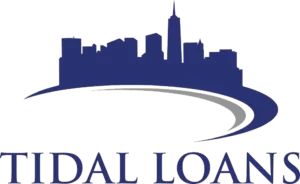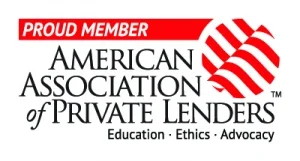Ever thought about using your home’s value for financial freedom? With rising property values, many homeowners have a lot of equity. But, what is cashing out of property, and how can it help you?
Cashing out means turning your home equity into cash. This is becoming more popular as homes get more valuable. Knowing how to cash out can help you use this equity for renovations, debt payments, or investments. But, it’s crucial to understand the pros and cons, especially when it comes to mortgage payoff and selling your property.

Key Takeaways
- Cash-out refinancing allows you to access up to 80% of your home’s value.
- Lenders often require a minimum credit score of 620 for traditional refinancing, though requirements may vary.
- Closing costs and fees can range from 2% to 6% of the loan amount.
- Fannie Mae and Freddie Mac set specific LTV requirements for single-family and multifamily units.
- VA loan borrowers can access 100% of their home equity.
- The process can take between 30 to 60 days to complete.
- The debt-to-income ratio should ideally be 50% or lower when considering a refinance.
Understanding Home Equity and Cashing Out
Let’s explore the basics of home equity and how to use it. Home equity is key to making smart financial moves. You can choose from a home equity release, HELOC or cash-out refinance, each with its own benefits.
What is Home Equity?
Home equity is the difference between your home’s value and your mortgage balance. It grows as you pay off your mortgage and your home value increases. Think of it as the part of your home you truly own.
How to Calculate Home Equity
To find your home equity, subtract your mortgage balance from your home’s value. For instance, if your home is worth $500,000 and you owe $300,000, you have $200,000 in equity. Homeowners gained $1.5 trillion in equity in the first quarter of 2024, a 10 percent increase from last year.
Methods to Access Home Equity
There are three main ways to use your home equity:
- Home Equity Loans: These give you a one-time payment and have fixed rates. As of August 21, the average rate is 8.52 percent. They’re good for big expenses like home improvements or college tuition.
- HELOC: Home Equity Lines of Credit work like credit cards but with a revolving balance. They have variable rates and let you borrow as needed. You can borrow up to 80-85 percent of your home’s value.
- Cash-Out Refinance: This involves replacing your mortgage with a new one for more money. It often has higher rates and costs but can lower your mortgage rate. Lenders usually allow up to 80 percent of your home’s value.
Pros and Cons of Cashing Out Property
Cashing out your property can be a smart move for many reasons. It gives you the chance to get a lot of cash for big expenses like home updates, paying off debt, or college tuition. But, it also has risks that homeowners need to think about carefully.
Benefits of Cashing Out
One big plus of a cash-out refinance is getting a lot of money at a low interest rate. Unlike personal loans or credit cards, you can borrow up to 80%-85% of your home’s value. This can lead to lower monthly payments than high-interest loans.
- Predictable monthly payments with a fixed-rate loan
- Potential to boost credit score by consolidating higher-interest debts
- Tax-deductible interest if used for eligible home improvements
For those wanting to renovate or improve their home, the tax benefits are a big plus. Plus, with home values going up, many homeowners see it as a good time to cash out wisely.
Risks Involved
Even with the benefits, there are risks to consider. Taking on more debt is a big drawback. Also, refinancing into a bigger loan can make your monthly payments higher. And, since your house is used as collateral, there’s a risk of losing it if you can’t pay back the loan.
- Higher monthly payments due to increased loan amount
- Potential risk of foreclosure if unable to meet payment terms
- Additional closing costs, typically 2%-5% of the loan amount
Also, cash-out refinances usually have slightly higher interest rates than other types of loans. Lenders want you to keep at least 15%-20% equity in your home after refinancing. This limits how much cash you can get out.
So, it’s important to weigh both the good and bad sides. Always shop around for the best rates, fees, and terms from different lenders. This will help you find the right option for your financial situation.
What is Cashing Out of the Property?
Cashing out of the property means turning part of your home’s equity into cash. It’s a smart move for homeowners who want to use their investment without selling. You can get a home equity loan, refinance your mortgage, or use a Home Equity Line of Credit (HELOC).
Definition and Explanation
What is cashing out of the property? It’s about using your home’s equity for cash. This is great for investors who want to make more money or need quick funds. You can use this cash for home improvements, new investments, or to pay off debt.
Different Ways to Cash Out
There are many ways to cash out, depending on your needs and the equity in your home. Here are a few common methods:
- Home Equity Loan: This gives you a big sum of money with a fixed rate. It’s good for big expenses and steady payments.
- Mortgage Refinancing Options: This lets you swap your mortgage for a bigger one and get the difference in cash. It’s great for big costs and might have lower rates.
- HELOC (Home Equity Line of Credit): A HELOC is like a credit card for your home. It’s flexible for ongoing costs but has variable rates.
Lenders often need a credit score of 620 for refinancing. They also look at your debt-to-income ratio and how much equity you have. There are closing costs, like appraisal fees, that can affect how much you get.
Investment properties have stricter rules. Lenders might only lend up to 70% or 75% of your home’s value. A cash-out refinance can help fund new projects, and personal needs, or improve your property’s value.
When and Why to Consider Cashing Out
Homeowners might think about cashing out for many reasons. One big reason is debt consolidation. They can use the money from a cash-out refinance to pay off high-interest debts. This includes credit cards and personal loans, and they can get lower interest rates.
Another reason is to fund major purchases. This could be for home renovations, a new car, or educational expenses. Using home equity can provide the needed funds without the high costs of other loans.
Creating an emergency fund is also important. It helps cover unexpected expenses like medical bills or job loss. With an FHA cash-out refinance, homeowners can borrow up to 80% of their home’s value. This can be a big help in emergencies.
- For a conventional cash-out refinance, borrowers can borrow up to 80% of their home’s value.
- In multifamily homes, this limit is usually capped at 75% of the property’s value.
- FHA loans allow borrowers to tap into the full 80% of their home value.
- VA loan cash-out refinancing often lets veterans access their entire home equity.
- Qualifying requires maintaining at least 20% home equity, a credit score of 620 or higher, and a debt-to-income ratio at or below 43%.
It’s important to see cashing out as a smart financial choice. You should check your current finances, think about your long-term goals, and know the market. While it can help with debt, big purchases, or emergencies, it also has risks. You could end up with more debt or even lose your home if you can’t meet the loan terms.
It’s a good idea to look at other options too. This includes HELOCs or home equity loans. They might be better for your specific situation.
Conclusion
Thinking about cashing out of your property is a big step. It can help you use your home’s value for big investments, paying off debts, or in emergencies. Knowing when to do it and understanding the market is key.
In places like Houston, the seller’s market is great for making smart money moves. It shows how important it is to stay up-to-date and ready to take advantage of real estate chances.
Cash-out refinancing can be a good choice because it often has lower rates than other loans. Lenders usually want at least 20% equity and a credit score of 620 for better rates. They also check your debt-to-income ratio, which should be 43% or less.
Closing costs for these refinances can be 2% to 6% of the loan amount. This can affect your long-term interest costs. It’s crucial to think these costs through to make the best choice.
For advice on making smart decisions, talk to experts like those at Tidal Loans LLC. They can help you make cash-out choices that fit your long-term plans. For more tips, selling a rental property quickly in a seller-friendly market can be a good move. Planning your finances well today can lead to great real estate investments later.


